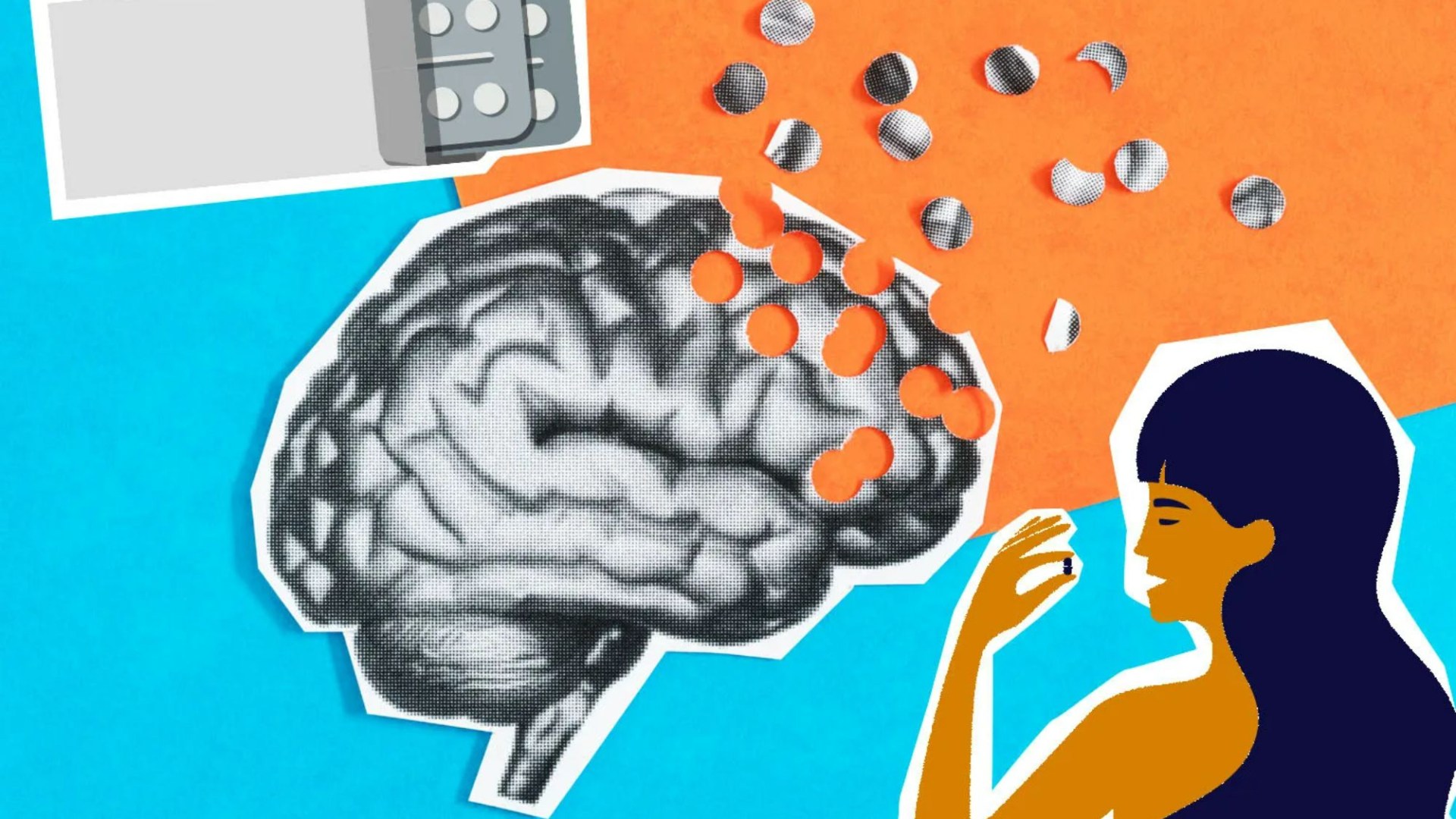A HANDFUL of common medicines you might have in your bathroom cabinet could raise your risk of dementia, a doctor has warned.
Nearly a million Brits have the disease and it is the leading cause of death.
2

2
The devastating condition slowly steals the memories and independence of those it affects.
The good news? Research says four in ten cases are preventable with simple lifestyle tweaks.
While smoking and drinking alcohol are obvious risks, it turns out some medications might also prove risky.
Dr Zain Hasan, an LA anaesthetist, told his 635K TikTok followers that at least five drugs are linked to cognitive decline.
“If you take one of these drugs daily you can end up with dementia,” he said.
“The theme for all these medications is that they typically affect your brain (except one) they cross the blood-brain barrier.
“Anything that sedates your brain for a long time, including analgesia, can cause dementia.
“If you are taking these medications always talk to your doctor first before stopping anything.”
1. Antihistamines…
Using hay fever medication regularly could be bad for your brain, Dr Hassad said.
“If you take diphenhydramine, also known as Benadryl or any type of antihistamine for a long time it has been linked to dementia,” he explained.
Drugs containing diphenhydramine are used as a go-to for relieving itchy, watery eyes, sneezing, and a runny nose from hay fever, allergies, or even a cold.
They’re also used to ease coughing from minor throat or airway irritation.
Research, published in Jama Internal Medicine in 2015, tracked the brain health of over 3,400 people aged 65 and over.
The US scientist found a link between higher doses of some antihistamines and dementia.
Fast forward to 2024, and a study in the Journal of Allergy and Clinical Immunology also links antihistamines to dementia.
They analysed data from over 700,000 Taiwanese patients with allergic rhinitis, splitting them into groups who did and didn’t take antihistamines.
The result? A dose-dependent rise in dementia risk.
Ways to lower your risk of dementia

There are things you can do to reduce your own risk of developing dementia, including Alzheimer’s.
No single behaviour is guaranteed to prevent dementia – but there’s lots of evidence to suggest that making tweaks to your lifestyle choices could affect your risk.
Dementia risk is lowest in people who have healthy behaviours in mid-life – from the age of 40 to 65 – according Alzheimer’s Society.
Here are a few easy changes you can make:
- Exercise regularly to boost your heart health and circulation and help maintain a healthy weight.
- Drink less alcohol – try to have no more than 14 units of alcohol a week, about one pint of beer or a small glass of wine each day. If you regularly drink much more than this, you are increasing your risk of damage to your brain and other organs, and so increasing your risk of dementia.
- Don’t smoke – it does a lot of harm to the circulation of blood around the body, particularly the blood vessels in the brain, as well as the heart and lungs.
- Engaging in social activities to help to build up your brain’s ability to relieve stress and improve your mood – depression and social isolation have both been linked to dementia.
- Manage health conditions, such as high blood pressure, high cholesterol or diabetes, which can increase the risk of getting dementia.
- Protect your eyesight and hearing – vision loss increases a person’s risk of developing dementia. The same goes for hearing loss, which can also be an early symptom of dementia.
- Wear a helmet – as traumatic brain injuries can start a process in the brain where the substances that cause Alzheimer’s disease build up around the injured area.
Source: Alzheimer’s Society
2. Opiates…
Opiates, painkillers commonly prescribed after surgery, injury, or for cancer patients, are another medication thought to increase dementia risk.
Dr Hasan explains: “It’s well-known that regular opiate use, like morphine, affects the brain.
“It causes sedation, and long-term sedation can eventually lead to dementia.”
A 2024 study of over a million chronic pain patients found that opiate users had a 15 per cent higher risk of developing dementia.
The study excluded those with cancer, surgery history, or a family history of dementia.
3. Heartburn medicine…
Another medication that can increase the risk of dementia is omeprazole, which is widely used to treat indigestion and heartburn.
He said: “If you take omeprazole regularly it can increase the amount of beta-amyloid in your brain, which can lead to dementia.
“It works as a proton pump inhibitor (PPI), it decreases acid inside your stomach.
“It is actually surprising to me, I had no idea it was linked to dementia.”
The latest study analysed data from an ongoing project that started in 1987, tracking the long-term health of 5,700 people who didn’t have dementia when they first joined.
The research, published in the journal Neurology in 2023, wasn’t originally set up to investigate dementia risk from medications,
However, researchers found that those who took proton pump inhibitors (PPIs) like omeprazole for over four and a half years had a 33 per cent higher chance of developing dementia later on compared to those who didn’t take the meds.
The study’s authors were careful to explain that the association they’ve shown doesn’t demonstrate causation.
4. Benzodiazepines…
Benzodiazepines, like valium and Xanax, are commonly used for anxiety, insomnia, and seizures.
But if taken long-term, they’re believed to raise the risk of dementia.
Dr Hasan said: “It makes sense, it goes into your central nervous system it numbs your entire brain, it helps with anxiety, it helps with alcohol withdrawal.
“If you take them for a long period especially to help you sleep at night, they can induce dementia.”
Scientists from France and Canada found that taking benzodiazepines, also known as benzos, for just three to six months increased the risk of developing Alzheimer’s by 32 per cent.
Alzheimer’s is the most common form of dementia.
But if you took them for more than six months, that risk shot up to 84 per cent compared to those who’d never used them.
5. Antidepressants
Dr Hasan also pointed out that some antidepressants could also increase the risk of dementia.
He pointed to Tricyclic antidepressants such as amitriptyline, which are also prescribed for pain and to help with sleeping.
It is already known that they can cause short-term confusion and raise people’s risk of a fall.
In a study published in the British Medical Journal in 2018, researchers examined GP records of over 40,000 people aged 65 and older with dementia and nearly 300,000 without.
They dug into prescribing data from up to 20 years before to see if there was a link between these drugs and later dementia diagnosis.
The results showed that those who had taken the drugs four to 20 years earlier were more likely to be diagnosed with dementia.
Worried about your medicine?

Prescription drugs heal us when we’re sick, ease our pain when we ache, and prevent or control long-term conditions.
But sometimes, even when they do the job they’re supposed to, they have unwelcome side effects.
Don’t let that make you automatically rule out a medication, especially if it’s an important part of managing a health condition.
But you shouldn’t accept unpleasant reactions without question, either.
It’s also important you never stop taking prescribed medicines without speaking to you doctor first.
Your doctor can help you determine if the side effects or conerns are serious, will go away on their own, or can be prevented.




